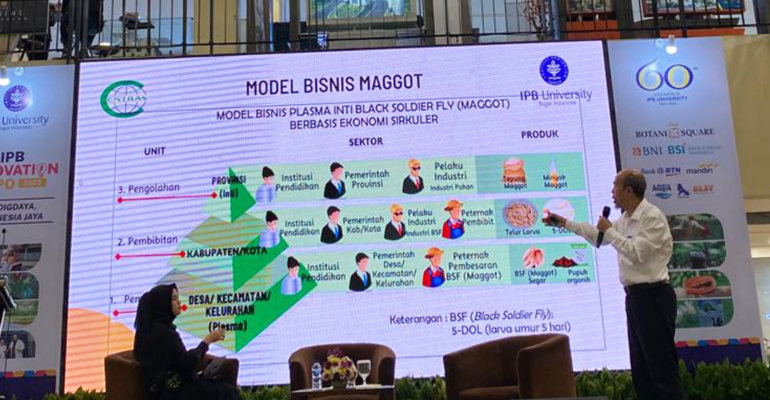Import One Million Tons of Feed Per Year, Professor at the Faculty of Animal Science, IPB University Proposes This

So far, domestic feed needs still depend on imports. Because Indonesia is still unable to make it. In fact, the feed industry currently imports around one million tons of meat bone meal (MBM) per year. This was conveyed by Prof Nahrowi, IPB University Feed Technology Expert in a talk show entitled Black Soldier Fly (BSF) Larva Core Plasma Core Business Model Based on Community Economy.
On that occasion, the Professor at the Faculty of Animal Science (Fapet) IPB University explained the maggot business model for alternative meat bone meal (MBM) feed in the poultry, fish and pig feed industries. According to him, MBM can be replaced apple to apple by maggot.
“Maggot is food made from black soldier fly (BSF) larvae. “This maggot business is very promising considering that the feed industry currently imports MBM of around one million tons per year or the equivalent of 10 trillion rupiah,”
In his presentation, Prof Nahrowi explained the reasons why maggot was the right choice. One of them is its ability to grow and develop well using available organic waste media. The availability of organic waste is estimated to reach 53 percent of total waste in Indonesia, around 30 million tons per year.
“The business model I offer is that people do not need to carry out the entire process from maintenance to drying the maggots. We only ask people to carry out the enlargement stage, while other stages will be handled by other parties,” explained Prof Nahrowi.
The initial stage involves distributing 5-day-old maggot seeds to the community. Then, the community will be responsible for raising the maggot for 10 days, so that within 15 days, the maggot is ready to be collected.
Prof Nahrowi emphasized that this business is very clear because the consumer is the feed industry. This business model is divided into three groups, namely rearing groups by rural and urban communities, several nursery groups that only exist in districts or cities, and several processing groups that operate at the provincial level.
This informative talk show was attended by various groups. In the discussion session, Muhammad Rizis Maulana, a student at the IPB University Vocational School, shared his experiences. Currently, he is undergoing an internship in Sukaharja Village, Bogor and is actively developing maggot cultivation. He is also interested in collaborating with Prof Nahrowi.
Another participant who was also interested was Andi, the general public who enthusiastically took part in the talk show. “I am concerned about the waste problem and am interested in taking part in maggot business training in collaboration with Prof Nahrowi,” he said. (Femmy/Rz) (IAAS/AMR)


